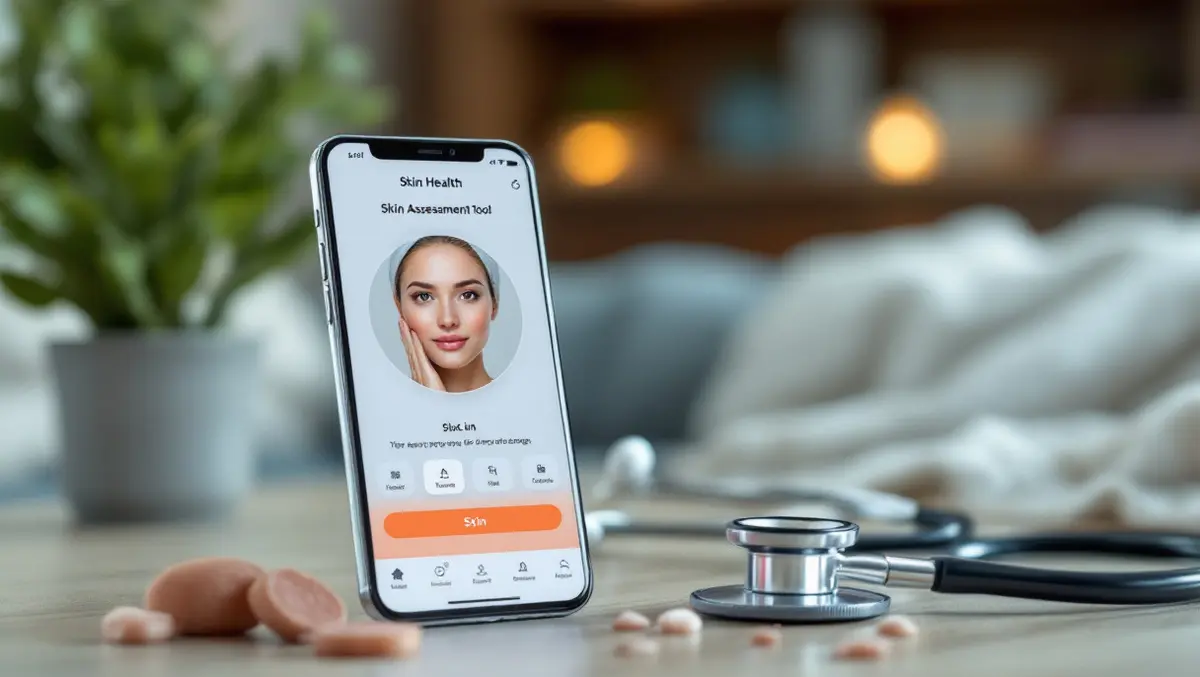
AI-powered app offers skin cancer checks & fast medical care
A Toronto-based artificial intelligence company has introduced a smartphone application designed to help users screen for skin cancer from home and connect them to medical care in Canada.
Skinopathy, founded in 2020 by plastic surgeon Dr Colin Hong and businessman Keith Loo, developed the GetSkinHelp app to address delays in dermatology referrals, which are currently as long as six months for many Ontarians. The app analyses photographs of moles taken by users on their smartphones and triages cases to connect patients with appropriate healthcare services either in-person or virtually.
The GetSkinHelp platform links users to specialists who can prescribe medications and treatment through the app and, for urgent cases, facilitates quicker biopsies. The technology is underpinned by a neural network that evaluates the images similarly to how a website security tool might distinguish images, while another computer vision feature applies the ABCD rule for skin cancer, measuring asymmetry, border irregularities, colour, and diameter.
Currently, the app can distinguish between eight conditions, including basal cell carcinoma, squamous cell carcinoma, melanoma, and benign moles, with an accuracy of 88%. An automated triage system assesses the urgency of each case, advising users if immediate follow-up is required or if monitoring is a suitable option. Users without a family doctor or facing long waits can book appointments with a Skinopathy clinician through the application.
Skinopathy has sought to accelerate its technological development by collaborating with Canadian universities. Partnerships have been facilitated by organisations such as Mitacs, an innovation group funded by the Government of Ontario and Government of Canada that matches companies with academic research talent.
Dr Hong, who serves as Chief Medical Officer, said, "There's so much great technology available today, but for many reasons, medical science hasn't kept up. Our partnership with Mitacs provides access to fresh, eager graduate students who bring new perspectives and out-of the box thinking to the table, helping to advance this groundbreaking technology in record time."
Dr Stephen Lucas, Chief Executive Officer of Mitacs, said, "Skinopathy is a powerful example of how Canadian innovation fueled by research talent from our own universities can lead to smarter, more accessible healthcare. We're proud to help accelerate made-in-Canada solutions that directly benefit patients and strengthen our health systems."
The idea for the skin cancer screening app originated during Ontario's first Covid-19 lockdown when Dr Hong observed that patients were presenting with advanced lesions after delaying medical visits. This observation prompted him to create a tool to promote earlier detection of skin cancer by enabling patients to screen potential issues remotely.
Six graduate students have been recruited by Skinopathy through the Mitacs partnership, including Mahla Abdolahnejad, who now serves as a data scientist at the company. She first joined as a PhD candidate in 2021 to apply her machine learning expertise to refine Skinopathy's AI models. Abdolahnejad recently received the Best Machine Learning Practitioner award at the 2024 AIMed Conference in Florida for her work with Skinopathy.
Abdolahnejad commented, "Unfortunately, when early-stage cancers are missed, it's often too late for patients and it also places a larger burden of care on the healthcare system. Our goal is to make sure that people who need a doctor get in front of the doctor."
She added, "When you've been working in academia as long as I have, it's not always easy to find a company that is willing to take a chance on you because even though you're at the leading edge of your field, you lack industry experience. I honestly believe I wouldn't have been able to find a position like this if it hadn't been for Mitacs."
Skinopathy reports that over 2,300 doctors have referred more than 24,000 patients to its services. The platform has also led to a reduction in missed appointments compared to the industry average. The digital system pre-loads patient information and generates consultation notes automatically, allowing clinicians to handle more patients effectively.
Toronto resident Jennifer Edey described the impact of the app when her mother used it to check a suspicious spot. "I'm not sure we would have prioritised seeing a doctor as quickly as we did without using GetSkinHelp AI," said Edey. "It gave us the confidence to see the doctor within a week and have the lesion dealt with quickly. In a very real way, it probably saved my mom's life."
Skinopathy is now seeking to expand its technology into other healthcare areas, including supporting first responders in triaging burns and providing wound care in retirement homes. The company also intends to develop solutions for anti-ageing care, acne, eczema, rosacea, and pigment disorders. Further plans include extending the smart platform to family practices, enabling easier triage of patients and reducing administrative workloads for physicians.
Dr Hong said, "There's so much need and opportunity and we know our system can help," highlighting the contribution of interns from the Mitacs programme to the company's progress.
Dr Lucas added, "This is exactly the kind of real-world impact we see when Canadian talent is put to work on pressing challenges. Mitacs is playing an increasingly important role in helping companies turn research into results - connecting private-sector needs with academic expertise to drive made-in-Canada solutions that strengthen productivity, improve services, and build long-term resilience."


